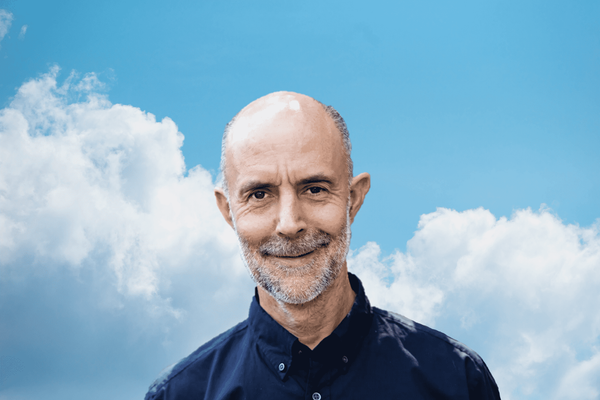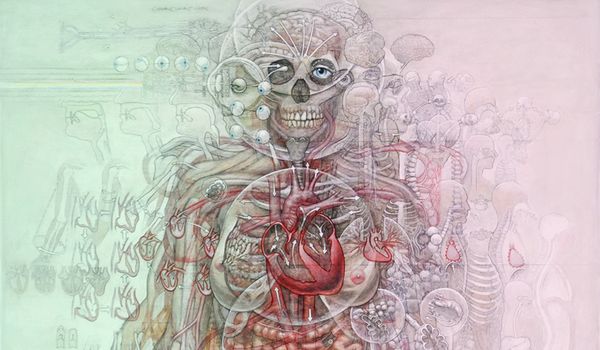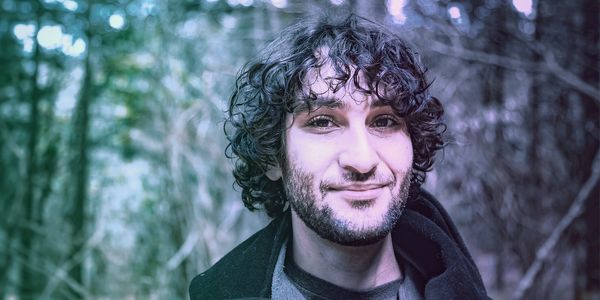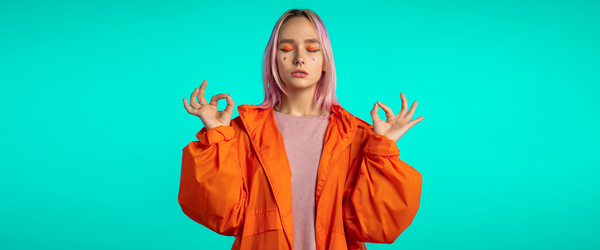Martijn Schirp • • 6 min read
The Art of Meditation / Stop Being a Zombie!

A person who thinks all the time has nothing to think about except thoughts. So he loses touch with reality, and lives in a world of illusion – Alan Watts
Have you ever driven your car or bicycle and suddenly you wake up somewhere down the road and can’t remember how you got there? What happened in those few minutes? When you put some effort into it, you probably remember some of the thoughts you had. And when you are honest about it, it was probably a fantasy. You either remembered the past, stuff you should have done but didn’t. Or you were fantasizing about the future, stuff that might never happen. And when I say that most of our ‘waking life’ we spend in our private dream world, not really aware of what is happening to us or within us, probably everyone who has not tried meditation will disagree with me.
And so did I when I first started meditating. Now I’m completely convinced that it’s true. I now need my meditation more than I need my coffee in the morning. Because with meditation, I finally start to notice what’s really important. Many books are written about it, but it’s actually pretty simple. Now is really important. Why now? Because there is no other moment. If you only think about future goals all the time you won’t even notice when you finally reached them. Because in that future you’re also thinking about the future and thus, you will never get there. And you might start to believe that the goal is the goal and not the journey itself. It seems to me that dying is not the goal of life, but living is.
So before I continue, I’d like everyone to experience this to understand what I’m talking about. Please join me in this little experiment and close your eyes, sit up straight, relax (probably your back and neck are tense) and try to be really aware of everything that happens, inside and outside, for just two minutes. Try not to get caught up by the storyteller inside your head that always has a comment on literally everything, but just be aware of the sensation of your breath, your computer humming, cars outside, your heart beating and everything else that goes on of itself.
Did you do the two minutes? How was it? How many times did you get caught up in another story?
There’s a lot written on meditation, and, to be honest; I do not have anything new or groundbreaking to tell. However, I do feel that it could benefit so many people in so many ways that it just has to be said over and over again.
What is Meditation?
Meditation is the act of training the mind. It works in the same way you train your body. With your mind, habits will form and with your body, muscles will form. One of the things you need for a healthy body is exercise; the same goes for your mind. You need good habits instead of bad habits. The more agitated your mind is, the less clear your thoughts will be. We think the time when we are awake should matter, and I agree, but in this age of information almost all of us are philosophical zombies some of the time, not really aware of what we are doing. Dr. Daniel J. Siegel, the inventor of Mindsight, defines the mind as ‘that which regulates the flow of energy and information’. With meditation, we increase the control we have over this regulation and so the control over our lives.
Why Meditate?
The Buddha said: don’t blindly believe what others say, see for yourself what brings serenity, clarity of thought and inner peace. But some people, like me, need more to be convinced. Of course, there is a rich culture that has been doing this for thousands of years, and they all say the same and nowadays science is getting more and more interested to find out if their claims are true. I hope that meditation can form a bridge between western science and eastern spirituality but the human brain is one of the most complex phenomenons we have in this universe and I feel like we are just scratching the tip of the iceberg. Numerous studies have shown that meditation, because of neuroplasticity, literally changes your brain. Neuroplasticity is the brain’s ability to reorganize itself by forming new neural connections throughout your life. These new connections that form with meditation seem to increase well-being and improve the quality of your life. Scientists also found changes in gray matter, the part of the brain that is associated with memory, sense of self, empathy and stress. The Mindfulness-Based Stress Reduction (MBSR) clinic uses meditation to reduce stress in patients so that they recover faster. So far, the outcome is positive, decreasing anxiety and depression.
I find it hard to explain what meditation has done to me. It’s like explaining colors to a blind man. I just wouldn’t ever want to miss it. In general, it taught me to get out of my head and into my life. It is my primary tool to eliminate any destructive emotions I encounter.
How to Meditate?
There are different forms of meditation and it’s beyond the scope of this article to treat them all. I will explain Shamatha (one-pointed concentration) and Vipassana (insight). You can do these meditations walking, sitting or lying down. My favorite is the traditional way of sitting on a cushion with your back straight. Make sure you have a quiet environment where you are undisturbed for the duration of your meditation and relax your whole body as much as you can. You can do either of these two meditations. In general the advice is to start with Shamatha because without concentration your mind will wander so many times that any other meditation will be less productive.
The Ultimate Beginners Guide To Meditation
Shamatha is the meditation of one-pointed concentration. This means that you try to keep a focus on one object. The number one recommended object is the sensation of your breath because of a couple of reasons; you can breath either consciously and unconsciously, you have your breath always with you, it is a natural biofeedback system which means that it gets more and more subtle the more you focus on it. You first start to take three deep breath while really focusing how the cold air comes into the nostrils, through your nose and throat and into your lungs and belly. Then warm air comes the same way back out again. Slowly start focusing on just the nostrils and discover the subtle sensation you might never felt before. Accept the fact that the mind has its own will and wanders every time you lose focus a bit. Slowly bring your focus back to the nostril. When you start with meditation, it might be easy to count from one to ten every time you finished an out breath (or the in breath, doesn’t matter). This way it is easier to become more mindful (to notice that you lost your focus on the sensation of your breath). Sometimes you realize you are already at number 20! Another handy thing is to label each thought as ‘thought’ or ‘this is a thought’. Keep in mind that there is no good or bad meditation so don’t worry if at first you don’t get it. Just try to accept everything that arises in your mind and body and keep bringing your focus back to the sensation of your breath.
If you have achieved a stable level of concentration you can move to Vipassana or insight meditation. The goal of this meditation is to be aware of every single sensation that makes up your reality. Don’t reject anything but accept life as it is. Focus on how all your sensations in your body change all the time. Not one moment is the same, it’s exactly as the Greek philosopher Heraclitus said ‘it is impossible to step in the same river twice’. Keep your focus on the arising and passing away again.
Start with twice five minutes a day and once you feel you’d like to sit longer, slowly increase to ten minutes. Have fun, it might be the most exciting and rewarding practice you’ve ever done!
Please ask in the forum if you have any questions regarding this article. If you want to know something more about meditation I would recommend ‘Mindfulness in Plain English’ by Bhante Henepola Gunaratana and ‘How to Meditate: A Practical Guide’ by Kathleen McDonald.
Cliffnotes: Sit still, concentrate like you would play a video game, relax like you would be sleeping and notice that everything changes all the time.
Picture by eldave









